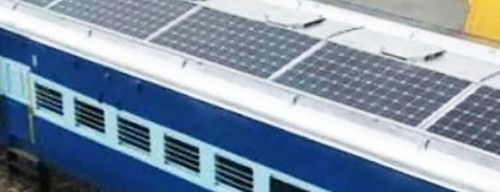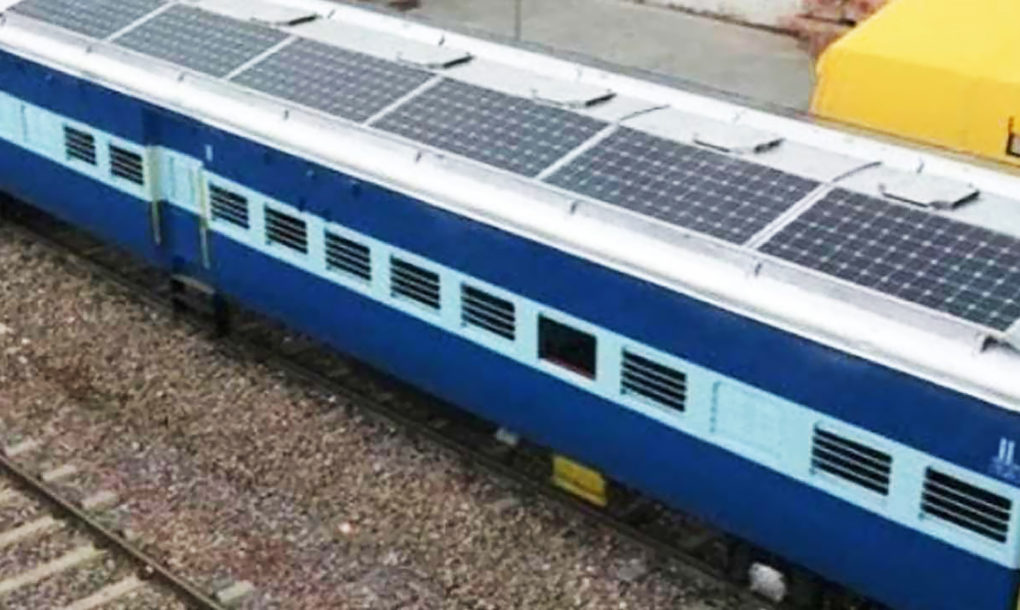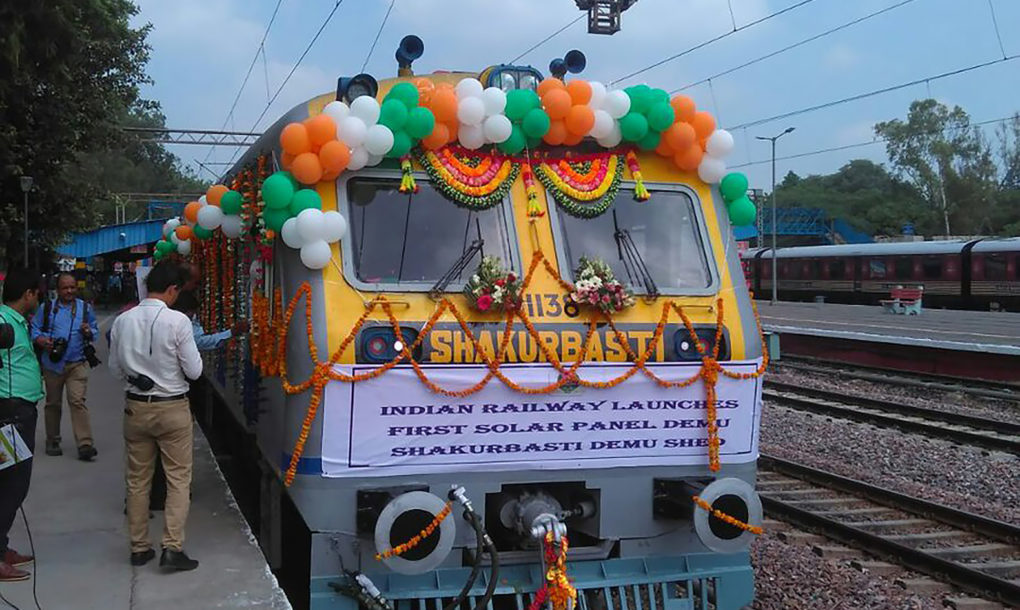RECOMMENDED VIDEOS

The journey from food waste to renewable power
Agrivert Ltd

Smart Energy Display
E.ON UK

Rack In A Box
Lock Solar Pty Ltd

Energy Storage for the Grid
NEC Energy Solutions

China Energy Saving Lamp Manufacturers & OEM LED light,…
Wuxi Nengchuang Tech Co., LTD
Related Stories
The largest solar farm apiary in the US opens this week
The City of London will be powered with 100% renewable energy by October 2018
New study suggests that plastic waste may be transformed into usable energy
Uravu’s zero-electricity Aqua Panels produce gallons of water from thin air
104% of Portugal’s electricity consumption in March came from renewable energy
21 Jul, 2017

Indian Railways launches first train with solar-powered coaches
Renewable Energy & Energy Efficiency | INDIA | 20 Jul, 2017
Published by : Eco Media Asia
Train travel in India just got a little greener. Last week Indian Railways rolled out their first train outfitted with rooftop solar panels – in the Delhi area notorious for its pollution. The solar panels will completely power fans, lighting, and display systems in the coaches. The government expects the move will save them around 5,547 gallons of diesel every single year.
The train, a 1600 HP DEMU, is just the first of several more trains with solar-powered coaches to come. Indian Railways will install solar panels on 24 other trains in the upcoming six months. In the past, a diesel-fueled generator provided electricity for a train’s lighting and fans, but the new solar system includes a smart MPPT inverter so these features can be cleanly powered even during the night. According to Indian Railways, the solar panels will slash carbon dioxide generation by nine metric tons per coach per year.

16 solar panels generating 300 watts each offer a 4.5 kilowatt peak capacity for each coach. The system can generate around 20 kilowatt-hours of clean power per day. A 120 AH battery system will store excess power generated during peak hours.
Minister of Railways Shri Suresh Prabhakar Prabhu said the railways are committed to conserving the environment and using more clean energy. The government’s press release on the trains pointed to other measures the railways have taken to become more environmentally friendly, such as the use of bio-toilets, biofuels, and wind energy.

Jakson Engineers, under the guidance of the Indian Railways Organization for Alternative Fuels (IROAF), developed the new train solar system. Managing director Sundeep Gupta told Business Standard is was no easy feat to attach solar panels to trains that will move at speeds of 80 kilometers per hour, which is around 50 miles per hour. The train has a lifetime of around 25 years.
Article from inhabitat.com
by Lacy Cooke
